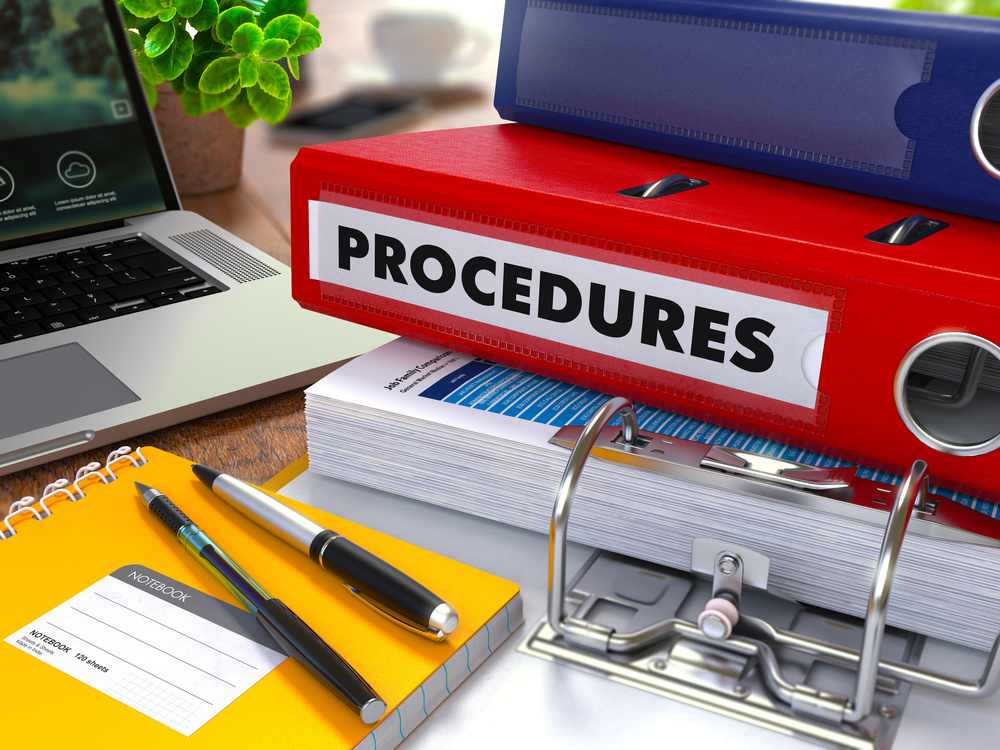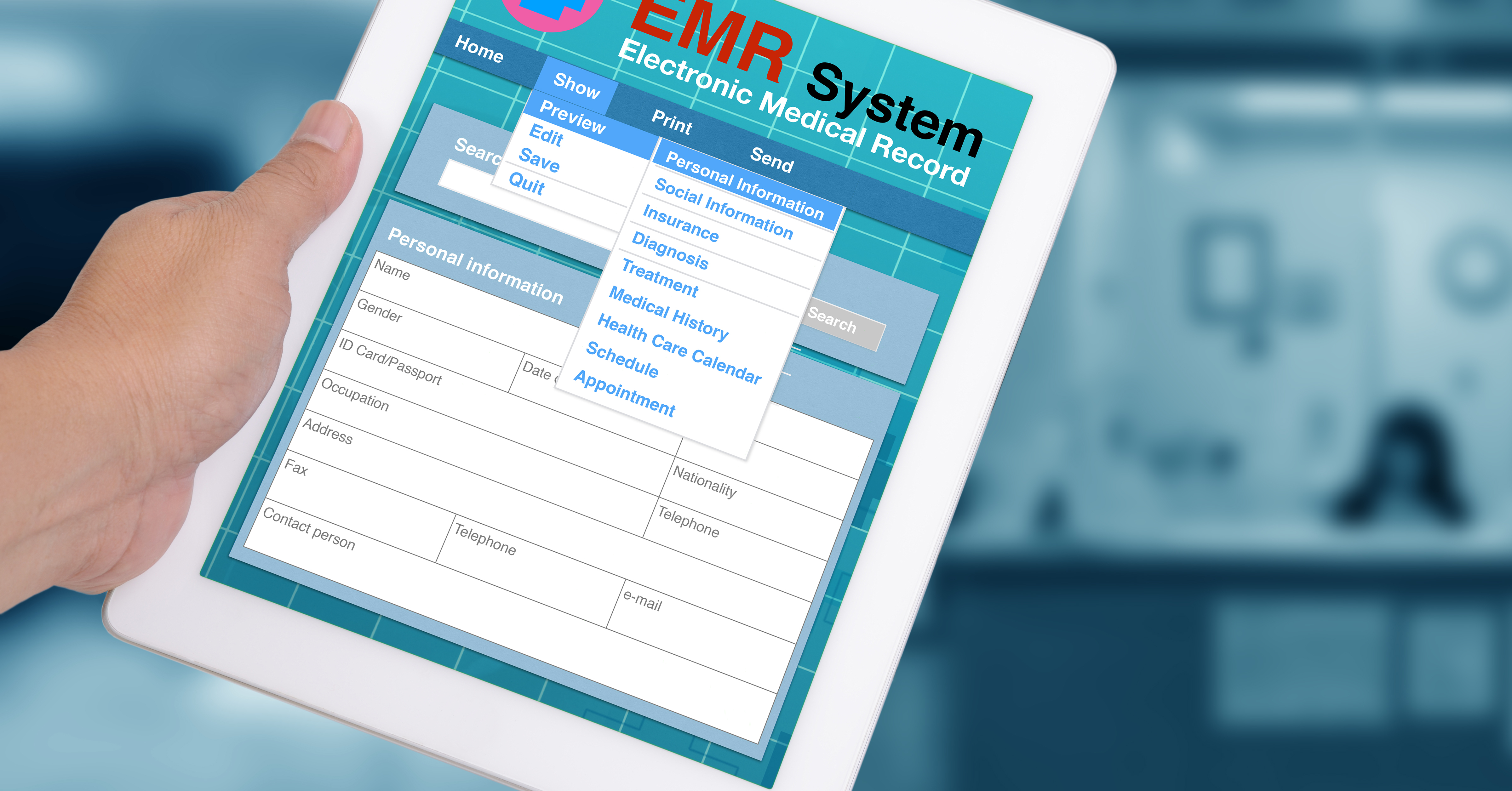Insurance investigations arising from patient complaints are increasingly common and may be your first indication that the patient had a concern about the care you provided or about your billing practices. These inquiries may originate from commercial insurers, Medicare Advantage plans, Medicaid managed care organizations, or government contractors acting on behalf of Centers for Medicare & Medicaid Services (CMS).
Insurance Investigations Triggered by Patient Complaints
Feb 3, 2026 5:35:28 PM / by PICA Risk Management Specialist posted in Compliance, Practice Management
Staff Performance Reviews – Are They Necessary?
Nov 26, 2025 11:34:26 AM / by PICA Risk Management Specialist posted in Practice Management
In a busy medical practice, daily demands often take precedence over administrative tasks like performance evaluations. However, conducting annual office staff reviews is one of the most valuable investments a practice can make. Regular, structured evaluations strengthen team performance, support staff development, and ultimately enhance the quality of patient care.
Avoiding Scope-of-Practice Violations
Nov 26, 2025 11:22:20 AM / by PICA Risk Management Specialist posted in Compliance, Practice Management
Scope-of-practice violations are among the most common – and costly – regulatory risks for doctors and medical practices. These occur when:
- A provider performs tasks they are not legally permitted or trained to do.
- Tasks are delegated to staff whose licensure does not authorize those activities.
Scale Your Practice & Maintain Quality Care
Oct 24, 2025 1:22:53 PM / by PICA Risk Management Specialist posted in Compliance, Practice Management
In today’s rapidly evolving healthcare landscape, many physicians are seeking ways to grow their practices without compromising the quality of care. Scaling a medical practice involves more than simply seeing more patients - it requires strategic expansion of operations, staffing, technology, and patient engagement systems. When done correctly, it can increase profitability, improve efficiency, and enhance patient satisfaction. Below are steps you can take to scale your practice.
Maintaining Professional Boundaries with Patients
Sep 10, 2025 5:39:17 PM / by PICA Risk Management Specialist posted in Risk Management, Practice Management
Professional boundaries are the ethical, legal, and relational limits that define the interactions between healthcare professionals and their patients. They protect the therapeutic relationship by ensuring that it remains focused on the patient’s health, safety, and well-being. Maintaining these boundaries is crucial for fostering trust, preserving professional integrity, and avoiding conflicts of interest.
Reducing Staff Turnover at Your Podiatry Practice
Aug 5, 2025 11:12:30 AM / by PICA Risk Management Specialist posted in Practice Management
Staff turnover places a significant strain on an office's finances and resources. It increases expenses related to recruiting, hiring, and training new employees, along with the cost of covering temporary staffing needs. Productivity often declines as attention is diverted to focus on the hiring and onboarding process. Additionally, turnover can negatively impact staff morale, especially when the remaining employees must take on extra responsibilities to compensate for vacant roles.
Office Staffing: Handling Time Off Requests
Jul 8, 2025 10:22:00 AM / by PICA Risk Management Specialist posted in Practice Management
Managing office staffing and handling time-off requests effectively is key to maintaining smooth operations, avoiding staff burnout, and ensuring good patient care.
Having Difficult Conversations with Patients
Jul 8, 2025 10:15:51 AM / by PICA Risk Management Specialist posted in Practice Management
Having difficult conversations with patients and their family is one of the most challenging yet important responsibilities in healthcare. These conversations can involve topics like delivering bad news, discussing prognosis, setting boundaries, addressing non-compliance, or managing unrealistic expectations.
Here are some steps you can implement to optimize difficult conversations you need to have with your patient.
Compassionate, Inclusive, and Competent Healthcare: Focus on the LGBTQIA+ Community
Jun 6, 2025 11:40:44 AM / by PICA Risk Management Specialist posted in Compliance, Practice Management
While most healthcare providers are compassionate and want to provide optimal care to their patients, implicit biases exist. Healthcare providers may not be aware of implicit biases, which may be subtle and unintentional, that can influence clinical interactions, lead to a lack of trust between the patient and the healthcare provider, and result in healthcare disparities.
Managing Patient Complaints to Optimize Outcomes
Jun 6, 2025 11:40:07 AM / by PICA Risk Management Specialist posted in Practice Management
You strive to provide quality care and good customer service to your patients. But inevitably, you will have a patient or patient’s family member that is not satisfied with the care you (or your staff) provided.
The Impact of Physician Burnout
May 12, 2025 2:40:12 PM / by PICA Risk Management Specialist posted in Practice Management
Physician burnout is a long-term stress reaction characterized by emotional exhaustion, depersonalization (indifference toward or detachment from work), and a decreased sense of personal achievement. Physicians are especially prone to burnout with almost half of physicians reporting at least one symptom of burnout.
Causes and Effects of Burnout
Physician burnout not only negatively affects physicians and their families, but it also puts patients at risk. Evidence suggests that physician burnout worsens the quality of patient care, increases the risk of medical errors, and decreases patient satisfaction.
Excessive workload, high patient volumes, administrative and regulatory burdens, increased documentation requirements, limited control over work schedules, and lack of support and autonomy from their organizations have been shown to increase physician stress levels and lead to a lack of work-life balance, emotional exhaustion, and poor relationships with colleagues and patients. This all creates burnout.
Steps You Can Take to Prevent Burnout
Here are some steps you can take at your practice to help reduce stress and prevent burnout:
You Just Received a Negative Online Review… Now What?
Apr 11, 2025 11:41:16 AM / by PICA Risk Management Specialist posted in Compliance, Practice Management
All healthcare professionals like to receive positive online reviews. It’s a great way to let people know about you and the exceptional care you provide. Which, in turn, can help send new patients your way.
Strategies for Patient Retention
Apr 11, 2025 11:29:42 AM / by PICA Risk Management Specialist posted in Practice Management
To have a thriving practice, you must have patients. While it is great to get new patients, it is important to focus on retaining established patients, too. If you create loyal patients, they not only return to your office for appointments, but they promote your practice to their friends and family which is great for business.
Practicing Culturally Competent Healthcare
Feb 6, 2025 1:53:05 PM / by PICA Risk Management Specialist posted in Practice Management
The Need for Fairness in Healthcare
In a perfect world, healthcare access and provision would be fair for all people, regardless of ethnicity, race, religion, gender, socioeconomic status, geographic location, language, age, disability, and other variables. Unfortunately, this is not always the case. To help address disparities in healthcare and improve patient outcomes, here is some guidance for practicing patient-centered and culturally competent healthcare.
Training Your Staff to Optimize Patient Care & Office Efficiency
Aug 12, 2024 4:15:03 PM / by PICA Risk Management Specialist posted in Practice Management
You may have staffed your practice with well-qualified people, but now they need proper training to understand your practice and its culture, their role within your practice, your policies and procedures, patient population, state and federal requirements such as HIPAA and OSHA, and other office practices. (If you need help with hiring, read our blog article, “Hiring the Best Staff for Your Practice”!)
Risk Management for Medical Emergencies in the Office Setting
May 24, 2024 11:18:44 AM / by PICA Risk Management Specialist posted in Risk Management, Practice Management
A patient suffers cardiac arrest while waiting in the exam room. An elderly visitor falls in the waiting room, is complaining of leg pain and is unable to get up. A diabetic staff member passes out from hypoglycemia. These are just a few examples of unexpected medical emergencies that could happen in a medical office.
Retirement Planning: Are You Prepared?
Apr 13, 2023 10:55:38 AM / by PICA Risk Management Specialist posted in Risk Management, Practice Management
If you’re thinking about retirement, it’s prudent to start planning well in advance. If you are a solo practitioner, will you sell or wind down your practice? If you are in a group practice or employed, what are your obligations regarding providing notice of retirement? What are your state licensing board’s requirements regarding retirement? How will you retain your medical and business records? How will you notify your staff and patients of your plan to retire? What do your contracts with health insurers require when you retire from practice? Do you need to purchase professional liability insurance “tail coverage”?
Integrative Medicine: Treating the Whole Patient
Apr 7, 2023 2:43:37 PM / by PICA Risk Management Specialist posted in Risk Management, Practice Management
Introduction to Integrative Medicine
Integrative medicine is an approach to wellness that is growing in popularity in the United States. It is patient-centered and combines conventional medicine and complementary medicine to treat the person as a whole. It addresses many factors, including the physical, emotional, social, spiritual, and environmental influences on a person’s health status. Integrative medicine focuses on the broader concepts of health that promote a person’s overall health and future well-being. Reviews and clinical studies have shown positive outcomes for patients and providers who participate in integrative medicine programs.
The Harmful Impact of Bullying in the Workplace
Mar 1, 2023 4:10:09 PM / by PICA Risk Management Specialist posted in Practice Management
What Workplace Bullying Looks Like
Bullying is harmful, targeted behavior that may be directed to one person, or a group of people. It might be spiteful, offensive, mocking, or intimidating. Bullying can range from being overtly obvious, such as yelling, to subtle, such as using condescending language. It is a repeated behavior that manifests from a real or perceived power imbalance and is often intended to control, embarrass, undermine, threaten, or otherwise harm the targeted person or group.
Examples of bullying include:
Cultural Awareness and Competence in Healthcare
Nov 7, 2022 1:25:21 PM / by PICA Risk Management Specialist posted in Risk Management, Practice Management
While most healthcare providers are compassionate and want to provide optimal care to their patients, everyone has biases and knowledge gaps that may hinder the provision of quality healthcare. These biases and knowledge gaps can lead to:
- Barriers to care
- Miscommunications
- Misdiagnosis
- Lack of trust
As the United States continues to become more diverse, cultural awareness and competence are key for healthcare providers.
Handling Patient Refunds the Right Way
Sep 8, 2022 12:03:22 PM / by PICA Risk Management Specialist posted in Risk Management, Practice Management
Finding yourself in a situation where a patient is unhappy with their treatment and asking for a refund, what should be your response? For example, you may feel that your work is satisfactory, and you are unwilling to provide a refund to the patient considering all the time you spent on their care. Or you may be seeking a quick resolution to the situation. In this article, we’ll take a closer look at how to handle patient refunds.
Ask an Expert – Two Common Questions (and Answers!) about EHR/EMR
Aug 15, 2022 1:13:39 PM / by PICA Risk Management Specialist posted in Compliance, Practice Management
We recently received two questions regarding electronic health records (EHR) or electronic medical records (EMR) and thought we’d share the answers in case you’ve asked yourself these questions too.
Here they are:
The Impact of Empathy in Healthcare
Aug 15, 2022 12:38:59 PM / by PICA Risk Management Specialist posted in Practice Management
What is the Role of Empathy in Healthcare?
Empathy is the ability to understand and share the feelings of another. It combines intellectual perspective with emotional understanding. Empathy is a skill that has not been historically emphasized in medical schools. However, it plays a crucial role in healthcare.
The Key to Success and a Thriving Business Revealed
Jun 2, 2021 9:03:19 AM / by Carly Robbins, DPM posted in Practice Management
Think for a minute about planning your dream vacation. Do you picture relaxing on a white, sandy beach with calm, clear blue water, a gentle breeze, the smell of salt water and the perfect sunset? Will it be Hawaii, Tahiti, Bali, the Mediterranean or the Caribbean? After selecting the location, now you need to book a hotel or vacation rental property. If you google hotels in Hawaii, hundreds appear. Do you go with the first one on the list? Of course not! You read all the reviews and ratings to make an informed decision.
A hotel can make or break your vacation. If the room is unclean, the amenities are lacking, the location isn’t ideal and the staff is unfriendly, your dream vacation won’t be a dream at all; it’ll be a nightmare! That is why recommendations, reviews and ratings are critical. People who have stayed at the hotel can tell you its pros and cons. In the same way, recommendations are essential to finding the best products and services.
How many times have you asked friends for recommendations on restaurants, coffee shops, contractors, mechanics, etc.? Your friends’ recommendations and firsthand experiences are more valuable than choosing the first car repair shop you see when you’re driving down the street.
Whether you’re looking for the best medical equipment to purchase, the most qualified employees to staff your office or where to obtain your next continuing education credits, you look to recommendations from colleagues, industry leaders, podiatric colleges and state and national podiatric medical associations. Recommendations from these respected individuals and organizations are far more trustworthy than simply taking the word of any company that provides products or services to podiatrists. These industry experts understand podiatric medicine and have the same appreciation for it as you do. Recommendations are the key to helping your business thrive and ultimately lead you to success.
Being endorsed and recommended by state and national podiatric medical associations is a great honor and privilege. It’s a decision that is made after careful planning by the association, and extensive research has been conducted on the company, its products, services, what it stands for and how it actively supports the podiatric community. An endorsement demonstrates the reliability, trust and confidence the association has in a company or brand.
Only one medical malpractice insurance company is endorsed by over 40 state and national podiatric medical associations. PICA is privileged to hold that great honor!
PICA understands the challenges you face today and is working diligently to help protect you. We have your best interests at heart and have designed a policy to thoroughly help protect your practice. PICA is continuously offering additional services and coverages to make sure your business practice needs are met and you’re protected from broader areas of risk. We also offer one of the largest online libraries of podiatry-specific risk management resources and confidential risk management consultation.
The protection of your reputation and practice is crucial. PICA’s defense counsel collectively have over 1,000 years of experience defending podiatric physicians and most of them have exclusive arrangements to defend only PICA insureds. With this level of expertise, you can rest assured that PICA will boldly protect your reputation and practice.
Over 40 state and national podiatric medical associations recognize that PICA offers quality products, outstanding service, dedication to the podiatric community, and unmatched value, so they offer their full support and endorsement to us.
How to Grow Your Practice and Attract More Patients
Jun 2, 2021 9:03:07 AM / by Krupa Patel, DPM, FACFAS posted in Practice Management
If you’re ready to grow your practice, you may need to make strategic changes in how you run the business side of your office. Podiatrists who are willing to put in the effort can create a practice that’s more attractive to new patients. Consider taking these steps:
Advertise Your Practice in the Right Places
Advertising may spread the word about your practice to potential patients within the community. Of course, you have to make sure you’re advertising in the right places--not every outlet is visible to patients.
Consider asking existing patients how they found your practice. With that information, you may find some new places to advertise or increase any advertising you’re already doing. Survey incoming patients to see how well your marketing efforts are doing.
Ask for Referrals
Often referrals are among the best sources for new patients. Let your current patients know you’re looking for referrals and welcome recommendations from existing patients. They can tell their friends and family about their experiences with your practice and hopefully find new patients for you.
Sometimes, patients aren’t aware that referrals are important to you. Adding a short and simple message such as, “We love referrals!” to your business cards, e-newsletter, social media or website may help you send the message and find new patients.
Partner with Other Healthcare Professionals
Another great way to get referrals is through other healthcare professionals. Consider teaming up with physical therapists or medical practitioners who may have patients suffering from foot pain and other common issues podiatry care may help with. These professionals may appreciate having a qualified professional as part of their network.
Improve Productivity
Streamlining your practice may provide you with more room in your schedule, mental bandwidth to work in and more resources to devote to each appointment. Becoming more productive can create new possibilities for your practice. Here are a few ideas:
Proof that Malpractice Insurance is Essential to Your Success
Jun 2, 2021 9:02:55 AM / by PICA Risk Management Specialist posted in Practice Management, Coverage
You’re a very busy podiatric physician. With so much to do in a limited amount of time, you may only think about malpractice insurance once a year—at your renewal. You may even say to yourself, “I provide the best possible care to my patients and my records are impeccable. I’m not going to get sued, so why do I have to pay for malpractice insurance?”
You can practice the best of care, follow every protocol and keep meticulous records, but that still won’t prevent a claim being filed against you. Yes, all those measures may reduce your risk, but ultimately, it’s out of your control and in the hands of your patient. Simply put, claims are filed every day; some are legitimate and others are frivolous. You shouldn’t live in fear of being sued, but you also shouldn’t ignore the fact that it’s a real possibility.
You may believe that if you’re uninsured or “go bare,” you’re less of a target of being sued. You may even think that when your patient’s attorney finds out you don’t have malpractice insurance, he/she will drop the case because there’s less potential for substantial financial gain if the case is won. While this may happen in very rare instances, the fact is that the attorney can still go after your personal assets, livelihood and reputation.
Another factor to consider is that a malpractice claim can be filed against you after you retire. Imagine if you were traveling the world and then came home to find out that you were being sued by a patient you treated before your long-awaited retirement. Everything you worked so long and hard for and all the finances you saved to cover your expenses during retirement could be in jeopardy. However, if you had a claims-made policy while you were practicing and purchased tail coverage after the policy was terminated, but the incident happened during the time the policy was active, the policy may protect you against that claim.
As you can see, a patient can file a malpractice claim against you whether or not you carry malpractice insurance. It doesn’t matter whether you are an actively practicing podiatric physician or retired--the threat of a lawsuit is still a concern. This can seem daunting, but there’s a simple solution that can give you peace of mind–a solution that’s not only necessary, but essential to the success of your practice. It’s to continuously carry malpractice insurance while you’re actively practicing and obtain tail coverage when you retire. With malpractice insurance, you can rest assured that you have a team of professionals helping protect you and your practice should a claim arise.
Don’t let one lawsuit take away the practice, reputation and lifestyle you worked tirelessly to build. The price of a malpractice policy is minimal compared to the financial loss a lawsuit can bring. Ask yourself this question, “Can I afford to be uninsured?”
If you don’t have malpractice insurance with PICA, now is the time to obtain coverage. PICA has been the leader in providing malpractice insurance to podiatric physicians for over 40 years and is the only insurer lead by a podiatrist. Our claims specialists and defense attorneys specialize in podiatry malpractice claims. Our team of knowledgeable professionals is readily available and happy to help you. At PICA, we’re with you. Every step of the way.
Contact us today for coverage information or fill out our online form to get a no-obligation quote.


























